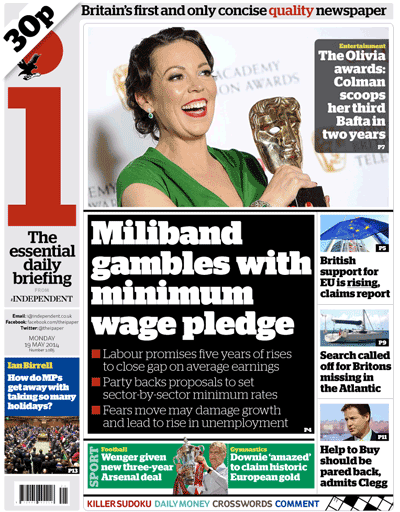i Deputy Editor's Letter: The National Minimum Wage

When the Black Death arrived at Melcombe Regis, Weymouth, in June 1348, few could have predicted the devastation it would wreak across these islands. During the next couple of years, it spread to all corners of the land, and was thought to have wiped out almost half of the general populace.
This huge decline in numbers left surviving workers in huge demand, causing wages to spiral out of control. As a result, King Edward III of England introduced the Ordinance of Labourers in June 1349, which brought into law new regulations which stated that “employers may not pay and workers may not receive wages higher than pre-plague levels” and that “food must be priced reasonably with no excess profit”.
Despite the ordinance being largely ineffective, with those in the labouring classes enjoying a century of relative prosperity until the population recovered, it was the first attempt to affect personal wages across the country.
The law was eventually repealed in 1863, and in 1909 the Trade Boards Act was passed, a piece of social legislation that allowed the creation of boards which could set minimum wage criteria that were legally enforceable.
But Britain had to wait until 1999 for a national minimum wage to be set, initially at £3.60 an hour for adults.
It currently sits at £6.31 an hour for adults (£3.72 for 16 to 17-year-olds) and now, with the 2015 election less than a year away, the issue of low pay looks set to be a key battleground.
With that in mind, I leave you with the words of Winston Churchill, who as an MP in 1909 argued for legislation to be introduced. He said: “It is a national evil that any class of Her Majesty’s subjects should receive less than a living wage in return for their utmost exertions.”
Living wage? There’s an idea…
Join our commenting forum
Join thought-provoking conversations, follow other Independent readers and see their replies
Comments